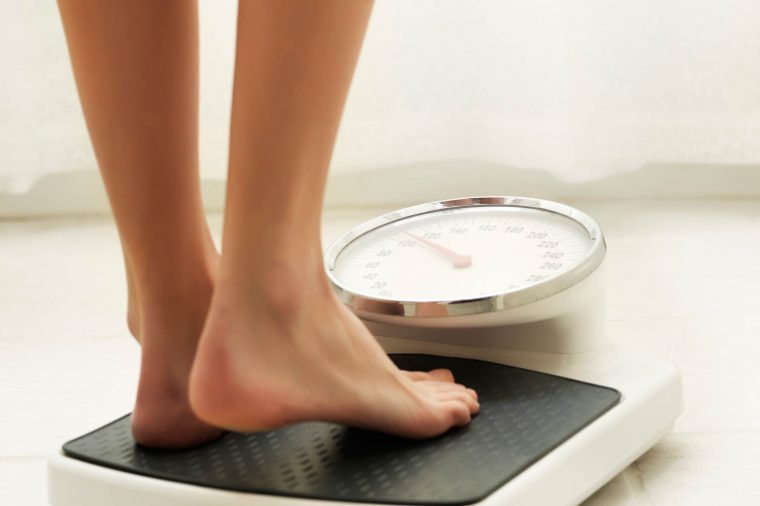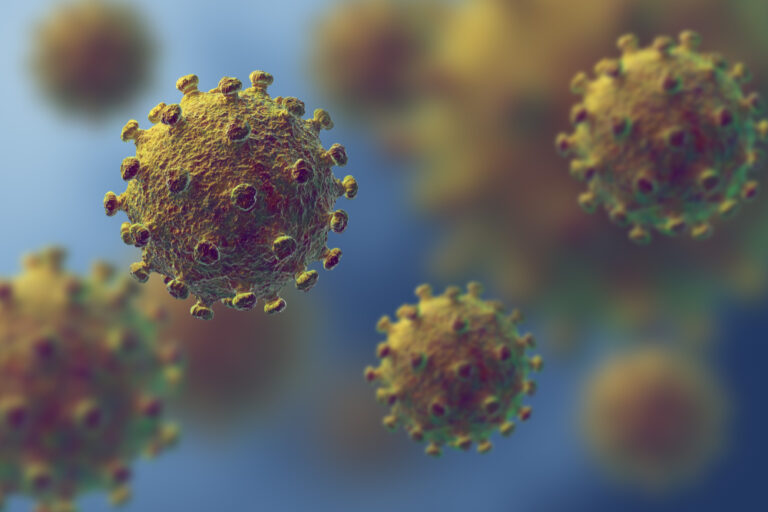
If you’re constantly wondering: ‘Why am I always cold?’, iron-deficiency anemia might be to blame. Red blood cells need iron to carry oxygen into the blood, and low levels of iron could hurt your circulation, says registered dietitian nutritionist Alyssa Tucci, RDN, a registered dietitian in New York, NY.
‘Coldness in extremities—hands and feet—is most pronounced, because the body is smart, so it diverts blood to vital organs like the heart and brain first,’ she says. Meat is the most common dietary source of iron.
Leafy greens and legumes are good sources, but pair them with a vitamin C-rich food like red pepper for maximum absorption, she says; it’s harder to absorb iron from plants.
Read on to find out other medical reasons why you’re always cold:
You have a B12 deficiency
‘People might assume they’re not getting enough iron when it’s really a B12 issue,’ says Andrea Moss, a certified holistic nutrition coach in New York, NY. Vitamin B12 anemia can cause coldness, numbness, and low energy, she says.
Like iron, most B12-rich foods are animal products, so vegetarians might have a tough time getting enough. Vitamin B12 is found in eggs, yogurt, and cheese. Vegans can sprinkle nutritional yeast—a cheesy-tasting powder—on popcorn or baked potatoes.
If you are a vegan, ask your doctor to periodically check your vitamin B12 levels to make sure you’re getting enough. Nutritional yeast isn’t always enough to ensure adequate levels of the vitamin.
You don’t produce enough thyroid hormone
When your body doesn’t produce enough thyroid hormone to regulate your metabolism, you could end up feeling cold all the time, says Margarita Rohr, MD, an internal medicine specialist at New York University Langone Medical Center in New York, NY.
If you’re experiencing other symptoms of thyroid disease, such as hair loss, constipation, weight gain or fatigue, go to a doctor for a blood test for hypothyroidism, she says.
You’re underweight
Being underweight could mean you’re always cold for two reasons, Tucci says. Fat works as an insulator, so having less fat might mean you can’t hold heat well. Plus, cutting calories can slow your metabolism, giving your body less energy to heat itself.
‘Your body is smart and doesn’t want to use energy if it’s worried that energy is scarce,’ Tucci says. If you’re trying to gain weight, Tucci recommends stocking up on calorie-dense foods with good fats, such as nut butter, full-fat Greek yogurt, and dried fruit.
You’re not sleeping enough
Not getting a good amount of sleep is another reason you might always be wondering, ’Why am I always cold?’ Although research on sleep and feeling cold is mixed, chronic fatigue can slow down your metabolism, leaving you feeling chilly during the day, Moss says.
Plus, your body temperature fluctuates at night, and your body gets used to that cycle, Dr. Rohr adds. If you’re staying up later than usual, your core body temperature might drop during the same time it would if you were asleep.
You are dehydrated
When your body doesn’t have enough water, it can’t circulate blood as effectively, Tucci says. Water also holds heat, meaning dehydration could leave your body without H2O’s temperature-retaining benefits.
To keep yourself hydrated, aim to drink half your weight in ounces of water, she recommends. For example, if you weigh 150 pounds, try and sip 75 ounces throughout the day.

























